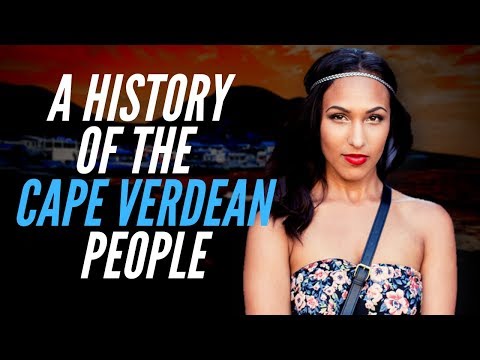
The Cape Verdean people, with their rich tapestry of cultural and ethnic backgrounds, offer a fascinating glimpse into the blending of African, European, and even American influences over several centuries. The archipelago, located off the northwest coast of Africa and composed of ten volcanic islands, has a history that is both storied and unique, marked by periods of hardship and prosperity, isolation and connectivity.
### Early Inhabitants and Colonial Rule
Before the 15th century, the Cape Verde Islands were uninhabited. The discovery and subsequent colonization by Portuguese explorers in 1456 marked the beginning of recorded history in Cape Verde. The islands became part of the expansive Portuguese Empire, serving as an important stopover on the Atlantic slave trade route. This geographical advantage positioned Cape Verde as a crucial refueling and resupply point for ships traveling to Europe from Brazil and the West African coast.
The initial settlement by the Portuguese brought about a significant amount of intermarriage between Portuguese settlers, African slaves, and later other European nationals. This blend formed a unique Creole culture epitomized by its own language – Kriolu (Crioulo), which is predominantly derived from Portuguese but incorporates various African dialects.
### Slave Trade Era
The transatlantic slave trade played a fundamental role in shaping early Cape Verdean society. Slaves from different parts of West Africa brought their customs, musical styles, and religions which deeply influenced the developing Creole identity. Although remote and isolated geographically, Cape Verde became cosmopolitan in its cultural outlook due to this confluence of influences.
### Famine and Hardship
Throughout its history up until the mid-20th century, Cape Verde was plagued by droughts that often led to severe famines. Agriculture was minimally productive due to poor soil quality and lack of rainfall; consequently, many islanders faced extreme poverty. These hardships were pivotal in prompting significant waves of emigration – mainly towards North America – where Cape Verdeans hoped for better living conditions and economic opportunities.
### Emigration Waves
The late 19th century saw large numbers of Cape Verdeans migrating to New England in the United States where they primarily worked in whaling industries or cranberry farms. Over time they established vibrant communities particularly in areas such as Southeastern Massachusetts around New Bedford and Providence.
Similarly significant was migration to other parts of Europe (notably Portugal), South America (especially Argentina), Western Africa (Senegal), other Lusophone countries like Angola or Mozambique; this dispersion is often referred to as “the diaspora.”
### Independence Movement
Cape Verde’s road to independence began earnestly during post-World War II decolonization movements across Africa. By aligning with its neighbor Guinea-Bissau under the leadership narrative propagated by Amilcar Cabral—founder of PAIGC (African Party for Independence) — it fought successfully against Portuguese rule which finally culminated in independence on July 5th 1975.
### Modern-Day Cape Verdean Identity
Today’s Cape Verde has made significant strides economically compared to its historical struggles with economic development hinged on tourism promotion centered around its beautiful island landscapes as well as cultivating transnational relationships through its diaspora communities worldwide.
Cape Verdeneans continue to maintain strong ties between those who reside on islands versus those abroad fostering a dynamic interplay between tradition versus newer global influences whether through music such as Funana or Morna food traditions religious practices or language use all contributing towards an ever-evolving but uniquely unified national identity.
In conclusion while small geographically speaking histories people have demonstrated tremendous resilience adaptability over centuries remain steadfast their celebration rich heritage forging pathways forward community both home abroad thereby ensuring legacy future generations cherish uphold.
